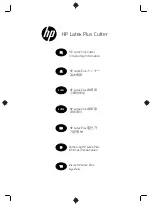
2
General recommendations
Keep this in mind:
Do not start the engine unless the clutch and clutch drum
are fitted.
Do not touch hot parts, e.g. silencer and clutch, before they
have cooled sufficiently to avoid burn injuries.
Avoid getting petrol or oil on the skin or in the mouth. Use
protective cream on the hands. This reduces the risk of
infection and makes it easier to wash off dirt. Prolonged
exposure to engine oil can be hazardous to health.
Never start the engine indoors. The exhaust fumes are
toxic!.
Wipe up spilled oil immediately from the floor to avoid
slipping.
Do not use tools which are worn or have a poor fit, e.g. nuts
and screws.
+
Always work on a clean work bench.
+
Always work in a logical way to make sure that all parts are
correctly fitted and that screws and nuts are tightened.
+
Use special tools where so recommended in order to do the
work correctly.
Fire hazard
Handle petrol with respect since it is highly inflammable.
Do not smoke, and make sure that there are no naked flames or
sparks in the vicinity.
Make sure that there is a functioning fire extinguisher in the
vicinity.
Do not try to extinguish a petrol fire with water.
Use an anti-spill fuel can.
Toxic fumes
Read the instructions carefully when using cleaning liquids.
Make sure that there is adequate ventilation when handling petrol
and other viscous liquids.
The engine exhaust fumes are toxic. Test run the engine outdoors.
Special tools
Some work procedures in this Workshop Manual require the
use of special tools. In each section where this is appropriate
the tool and order number are illustrated.
We recommend the use of special tools partly to avoid personal
injury and partly to eliminate expensive damage to the
components in question.
Sealing surfaces and gaskets
Make sure that all sealing surfaces are clean and free from the
residue of old gaskets. Use a tool which will not damage the
sealing surface when cleaning it. Scratches and irregularities
are removed with a fine, float cut file.
Sealing rings
Always replace a sealing ring which has been dismantled. The
sensitive sealing lip can easily be damaged and result in poor
sealing capacity. The surface which the seal seals must also be
completely undamaged. Lubricate the sealing lip with grease
before it is fitted and make sure that it is not damaged, e.g. by
the shoulder and splines on a shaft. Use tape or a conical
sleeve as protection. It is important that the sealing ring is
correctly turned for it to function as intended.
The engine exhaust from this product
contains chemicals known to the State
of California to cause cancer, birth
defects or other reproductive harm.
WARNING
!
!
!
!
!
!
!




































